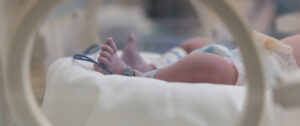Many researchers engaged in collaborative research often just fall into their collaborations as a natural outgrowth of their work and their professional interactions. And the collaboration may work well. However, there are many situations when researchers should explicitly consider the nature, benefits, and pitfalls of collaborative research.
The first is when a researcher is considering a new line of research that requires the expertise of others. Explicitly thinking about how collaborations begin and how they are sustained can help the researcher consider how to establish a new collaboration, and the kind of colleagues who will make the collaboration successful.
Another situation involves a collaboration that already exists, but might, in the researcher’s opinion, be proceeding poorly. Some knowledge of the different ways that successful collaborations may be configured can provide some flexibility in adjusting the working relationship so that it is more successful.
Finally, even experienced researchers are often unprepared for the added level of difficulty that collaboration can present. Researchers who are aware of the challenges inherent to collaborative projects are better prepared to roll with the intricacies involved and not let the challenges become stumbling blocks.
Resources
Joint Committee on Infant Hearing (JCIH)
This multi-organizational committee was established about 30 years ago by the American Speech-Language-Hearing Association, the American Academy of Pediatrics and what was then called the American Academy of Ophthalmology and Otolaryngology. Today it also includes the American Academy of Audiology, the Council on Education of the Deaf, and the Directors of Speech and Hearing Programs in State Health and Welfare Agencies. The mission of the committee is to make recommendations on the identification of and intervention for infants with hearing loss. The current JCIH 2000 position statement and all past JCIH position statements are located on the JCIH site. The committee is currently completing the 2005 statement.
Survey on Collaboration Between SLPs and Neuropsychologists in Rehabilitation Settings
The Joint Committee on Interprofessional Relationships Between ASHA and Division 40 (Clinical Neuropsychology) of the American Psychological Association (APA) conducted a survey to determine the extent and nature of collaboration in rehabilitation settings between speech-language pathologists (SLPs) and neuropsychologists (NPs). Results indicate that opportunities for collaboration are less common among SLPs than NPs. When both NPs and SLPs are present in a facility, very similar perspectives on collaboration were found, especially in the process of patient care and training. For more information about this study or the work of the joint committee, please contact Diane Paul at dpaul@asha.org.
Establishing Collaborative Partnerships Is Focus of Special Issue of Topics in Language Disorders
The first 2006 issue of Topics in Language Disorders (published by Lippincott Williams & Wilkins) is a special issue on establishing collaborative partnerships to assist with literacy acquisition. The issue focuses on ways that speech-language pathologists and teachers in general and special education can collaborate successfully in the provision of literacy-related services for students at risk for or with identified language impairments. The compilation of articles addresses guiding principles, challenges and solutions, and evidence-based practices for establishing and maintaining productive literacy partnerships. Case profiles are used to provide a framework for meaningful collaboration in the areas of emergent literacy, word recognition, reading comprehension, written composition, and assistive technology. For more information, please contact Issue Editors Froma Roth at froth@hesp.umd.edu or Diane Paul at dpaul@asha.org.










